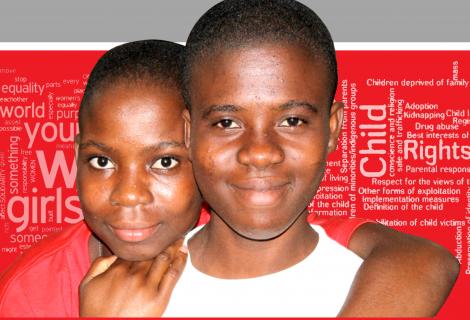
This guide is meant to be used by the patrons, executive members of the Girls’ Clubs and other members for the promotion of human rights, particularly the rights of the girl-child. It is aimed at addressing the capacity needs of patrons and executives in the running and management of the clubs in schools.
The manual is a useful guide to individuals, institutions and groups who wish to start similar structures to address relevant concerns or challenges of girls. It will also serve as an alternative approach to the development of the girl-child, which can be adopted by government and other stakeholders to address the needs of girls in our schools and communities.
There is no dispute that women and girls, who form the majority of our society, are marginalised and in some cases discriminated against. In many communities in Ghana, particularly in the Upper East, Upper West and Northern Regions, girls are sidestepped for boys when families enrol their children in school. This is clearly a denial of the girlchild’s right to education, which eventually may lead to the denial of her other rights.
The right to education is inextricably linked to the enjoyment of other rights, such as health care, shelter, economic empowerment, etc.
Violence in the form of sexual abuse, socio-cultural practices and economic
deprivation, deny girls their right to education. This constitutes an infringement on their right and prevents them from enjoying the full benefits of their rights while in school. It also interferes with and undermines the attainment of internationally accepted educational goals, including the Sustainable Development Goals (SDGs).
It is against this background that ActionAid has facilitated the formation and
operation of Girls’ Clubs in our community schools, to empower the girls to identify and fight for their rights in and outside the school environment.
This guide is, therefore, intended to provide the Girls’ Clubs with the necessary knowledge and skills to make them conscious of their rights, entitlements and responsibilities, as well as to empower them to demand accountability from dutybearers, including parents, teachers, community leaders and the government. It is also expected to guide the running of Girls’ Clubs in all ActionAid sponsorship communities and for other girls’ rights initiatives across the country.